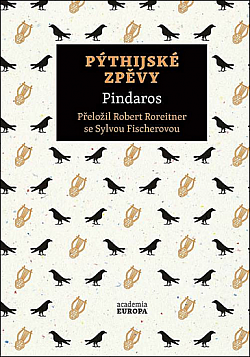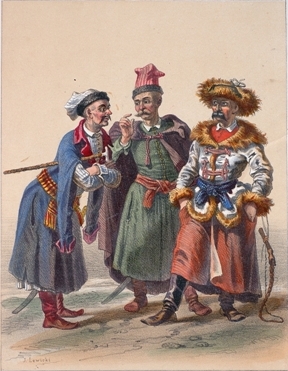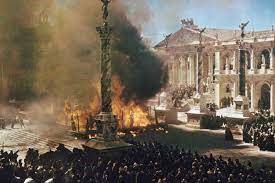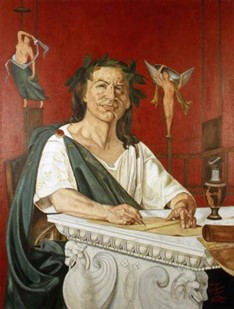První český překlad Pindarových Pýthijských zpěvů
doc. Sylva Fischerová a Mgr. Robert Roreitner (Filozofická fakulta, Univerzita Karlova)

Přednáška se koná ve čtvrtek 8. prosince 2022 od 18:00 hodin v místnosti C144 (Celetná 20, Praha 1).
Anotace: Pindaros je básník, který bývá označován za nepřeložitelného. V přednášce se pokusíme představit jedinečnou poetiku jeho epiníkií, otázku způsobu jejich inscenování i strategii, kterou jsme při překládání jeho Pýthijských zpěvů zvolili.
Polonus sum – latine loquor? Několik slov o stavu výuky latinského jazyka v dnešním Polsku
dr. Jakub Kuciak (Zespół Języka Łacińskiego, Jagiellońskie Centrum Językowe, Uniwersytet Jagielloński, Kraków)

Přednáška se koná ve čtvrtek 20. října 2022 od 18:00 hodin v místnosti C144 (Celetná 20, Praha 1).
Anotace: Polský šlechtic v novověku říkal hrdě: Eques Polonus sum, latine loquor. Co se tedy stalo, že toto rčení ztratilo na aktuálnosti do té míry, že v dnešním Polsku latinský jazyk skoro zmizel ze škol? Přednáška se soustředí na výuku latiny v polských středních školách a na univerzitách. Představeny budou používané metody a učebnice, které jsou dostupné na polském trhu, a na závěr perspektiva dalšího vývoje didaktiky latinského jazyka v Polsku.
Politics in Homer
Prof. Dr. Heinrich Schlange-Schöningenr
(Universität des Saarlandes, Saarbrücken)

Přednáška se koná ve čtvrtek 12. května 2022 od 18:00 hodin v místnosti C144 (Celetná 20, Praha 1).
Anotace: The Homeric epics tell of war and conquest, loss of homeland and bloody revenge. The focus is on individual heroes such as Achilles or Odysseus. The main issues are their prestige and their “royal” position. If one understands these problems as social issues, then politics also plays a role in this great poetry. But how is “politics” to be understood in Homeric times? Are there communal procedures and regulations? Was the power of “kings” unlimited? The lecture shows that Homer linked his „heroic poetry“ with a critique of rule and the depiction of political practices that point ahead to Greece’s development into democracy.
Did Women have a Fall of the Roman Empire?
Dr. Jeroen W.P. Wijnendaele (Ghent University)

Přednáška se koná ve čtvrtek 31. března 2022 od 18:00 hodin v místnosti C144 (Celetná 20, Praha 1).
Anotace: The Roman Empire was the only political system that ever managed to integrate the entire Mediterranean world and its European hinterland for more than four centuries. Since the 18th century, historians have not ceased debating whether we should see its disintegration in the West during the fifth century as an apocalypse, a transformation, or „much ado about nothing“. Rome’s Fall has also been exploited by politicians and journalists to analyze current migration crises or climate change. But where are the women in this [hi]story? How were the lives of women – still half of the population then as now – shaped by the tumultuous events of this era?
Augustine, the Preacher and the Actor
Prof. Paola Francesca Moretti (Università degli Studi di Milano)
Přednáška se koná ve čtvrtek 17. března 2022 od 18:00 hodin v místnosti C144 (Celetná 20, Praha 1).
Anotace: Augustine, as a skillful teacher, was well aware of the ‘theatrical dimension’ of rhetoric, and this awareness deeply informed his preaching activity. Moreover, Augustine knew that his potential listeners were attracted by sinful profane spectacula, and hence often had to choose between the Church and the (amphi)theatre. The ‘theatrical dimension’ of Augustine’s preaching will be dwelt upon briefly. It displays itself mainly in a twofold manner. First, when the preacher ‘acts as an actor’, as a performer, hinting at the physical stage (setting) of the homily: the town, the sea, the basilica, etc. Second, when the preacher, using his own words, presents his public with the many kinds of spectacula Christiana, that can compete with profane ones: the preacher either describes the spectacula ‘organised’ by God (from the creation of the world to the martyrs’ heroic sufferings), or even acts as a regisseur and creates the ‘stage’ where the spectaculum of a prodigious healing can take place in the public’s eyes. In both cases, the visual dimension (evidentia) of Augustine’s preaching is no longer a rhetorical device; rather, it turns out to be the instrument of an ‘education of the gaze’, leading to see the invisible through the visible.
Proč se na střední škole zabývat římskou literaturou?
PhDr. Bořivoj Marek, Ph.D. (Ústav řeckých a latinských studií FF UK)

Přednáška se koná ve čtvrtek 27. ledna 2022 v 18:00 hodin v místnosti C144 (Celetná 20, Praha 1).
Anotace: Předmět latinský jazyk se nejčastěji pojímá jako výuka jazyka. Tomu odpovídají i užívané učebnice. Texty v nich bývají z počátku uměle vytvořené (didaktizované) a zpravidla teprve ke konci celého kurzu se žáci setkávají s úryvky z konkrétních římských autorů. Díky těmto textům se mohou poučit o starověkých dějinách a získat určité poznatky i z oblasti politologie, práva, filosofie, mytologie atd. Cvičné věty sloužící k demonstraci jednotlivých gramatických jevů jsou v učebnicích obyčejně dále doplněny o odkazy na reálie antického světa a výklady týkající se obecně řecké a římské kultury. Všechny složky výuky spojené s poznáváním světa starověkého Říma tedy bývají vcelku vyváženě zastoupeny. Kromě literatury. Literatuře a její teorii, s výjimkou příležitostných literárně-historických zmínek o některých autorech, se ve většině případů věnuje zdaleka nejmenší prostor. Příspěvek se proto v první řadě pokusí představit některé zásadní důvody, proč se římskou literaturou vůbec zabývat (např. propojení dnešního světa a antiky; první evropská „odvozená“ literatura; formativní a psychagogická funkce; výchova k tvořivému pochopení jazykového projevu a vysoká stylistická hodnota kanonických děl ad.). Dalším krokem bude pokus o odpověď na otázku, zda a jak může římská literatura pomoci naplňovat průřezová témata stanovená RVP pro gymnázia.
